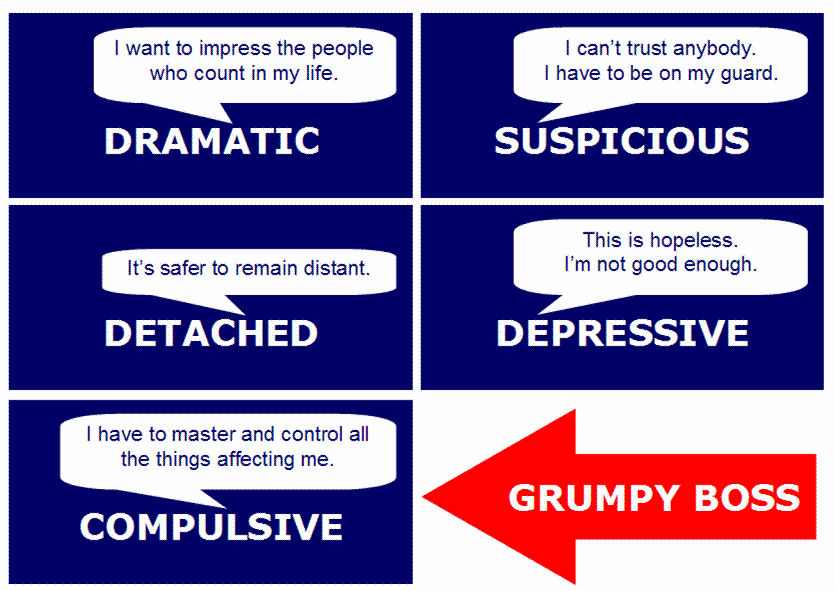This is a small inquiry into the nature and causes of the grumpy boss. At the same time I would like to add new name to my list of guru’s: Manfred Kets De Vries. This INSEAD professor is most famous for his research on what he claims to be ‘neurotic organizations’.
Altogether he distinguishes five types of neurotic organizations that reflect the neurotic patterns of their leaders. In many organizations the neurotic leadership traits start like solid strengths that become a weakness over time. For example a leader’s careful attention to the action of rivals becomes a paranoia as his healthy wariness becomes a unmitigated suspicion.
That’s kind of what happened to our poor grumpy manager. If you have a closer look you will find that the grumpy boss is of the compulsive type.

One can imagine that these neurotic styles of leadership have a firm traceability back into the different developmental stages of childhood. In other words: there is a clear link between these neurotic styles of leadership and the extent to which caretakers, parents, siblings and teachers have been able to channel childhood helplessness and the developing "sense of self" into a psychologically healthy person. As Kets De Vries notes: "Inadequate resolution of these childhood tensions often produces feelings of rage, a desire of vengeance, and a hunger for personal power. If that hunger is not properly resolved in the various stages of childhood, it may be acted out in highly destructive ways in adulthood.
So there you go: next time you clash with a grumpy boss, take the above compass to guide you. When you are managing your boss you will be able to have more empathy as you discover the childhood tensions that remain unresolved. Good luck and hang in there – I feel sorry for them too 😉

